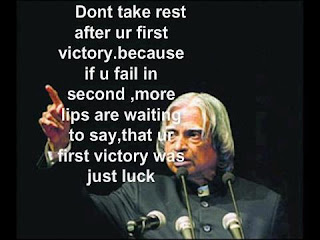The win was anticipated as
Mukherjee had the backing of the Trinamool Congress, the Rashtriya Janata Dal,
the DMK, the Forward Bloc and Samajwadi Party but also NDA ally Janata
Dal-United and Shiv Sena.
The contest was between UPA
candidate Pranab Mukherjee and opposition-supported P.A. Sangma, a former Lok
Sabha speaker.
Sangma, a member of the Meghalaya assembly, is supported by the BJP, Akali Dal, Asom Gana Parishad, Jharkhand Mukti Morcha, AIADMK and Biju Janata Dal.
The odds were heavily stacked
against Sangma the man who has never lost any election from 1977 till 2008. And
Sanga's defeat to Mukherjee, would mean that for the first time in 35 years
that he would be left without any 'current' designation.
Sangma had surely brought in an
element of excitement into the 2012 presidential poll which even made former
Uttar Pradesh chief minister Mulayam Singh Yadav fumble during Thursday's poll,
rendering his vote invalid'.
About 95 percent of the 4,896 electorate exercised their franchise to elect India's 13th president at polling centres set up at Parliament House and 30 state and union territories.
In 81-member Jharkhand Assembly, Mukherjee got 60 votes while Sangma won 20. Mukherjee's vote value is 10560 while Sangma's stands at 3520. He scored more than 558,000 votes crossing the required half-way mark of 5,25,140 votes.
Pranab led Jammu and
Kashmir
and surprisingly in Jharkhand where BJP shares power with JMM. In BJP-ruled
Himachal Pradesh Mukherjee trailed as expected.
Pranab
Mukherjee began his political career with the Indian National Congress in 1969
under Prime Minister Indira Gandhi. He became one of her top lieutenants and
was often described as her "man for all seasons".
Ever
since he threw his hat into the presidential ring, Sangma has been clinging on
to the 'conscience vote', 'miracle' and 'hope' rhetoric.
As finance minister since 2009, he was unable, or unwilling, to push through proposed reforms. Over the past year, growth has stalled, the rupee’s value has plunged and foreign investment has all but collapsed. His nadir might have been this year’s budget speech, when he announced a huge retroactive tax on overseas acquisitions and new rules to prevent tax avoidance that panicked foreign investors.
Mukherjee’s stubborn response to business complaints that he was changing the rules midstream and making it difficult for investors to trust the government made things even worse.
“There was a sense that he
was just not in a mood to listen. That proved to be a disaster,” Barua said.
Immediately after Mukherjee
resigned last month, Prime Minister Manmohan Singh — the architect of the
country’s 1991 economic reforms — took over the finance ministry. He implored
top finance officials to “revive the animal spirit” in India’s economy,
implying that Mukherjee had somehow suppressed it.
Recent
signs indicated the party’s leaders felt Mukherjee — described by the U.S.
Embassy in a cable released by Wikileaks as “the ultimate Congress party fixer
and operator” — might have run his course and
could be doing more harm than good.
Mukherjee finally realized he was never going to be prime minister and opted instead for the next best thing — taking walks through the splendid gardens at the presidential palace.
It is also possible
Congress wanted a top man in the president’s house for a five-year term as a
hedge against a poor showing in 2014 elections. Though the presidency is mainly
ceremonial, Mukherjee might find a way to use it to exert some influence. In
the event of a hung Parliament after the next elections, he would have the
power to choose which party could first try to form a coalition government.

